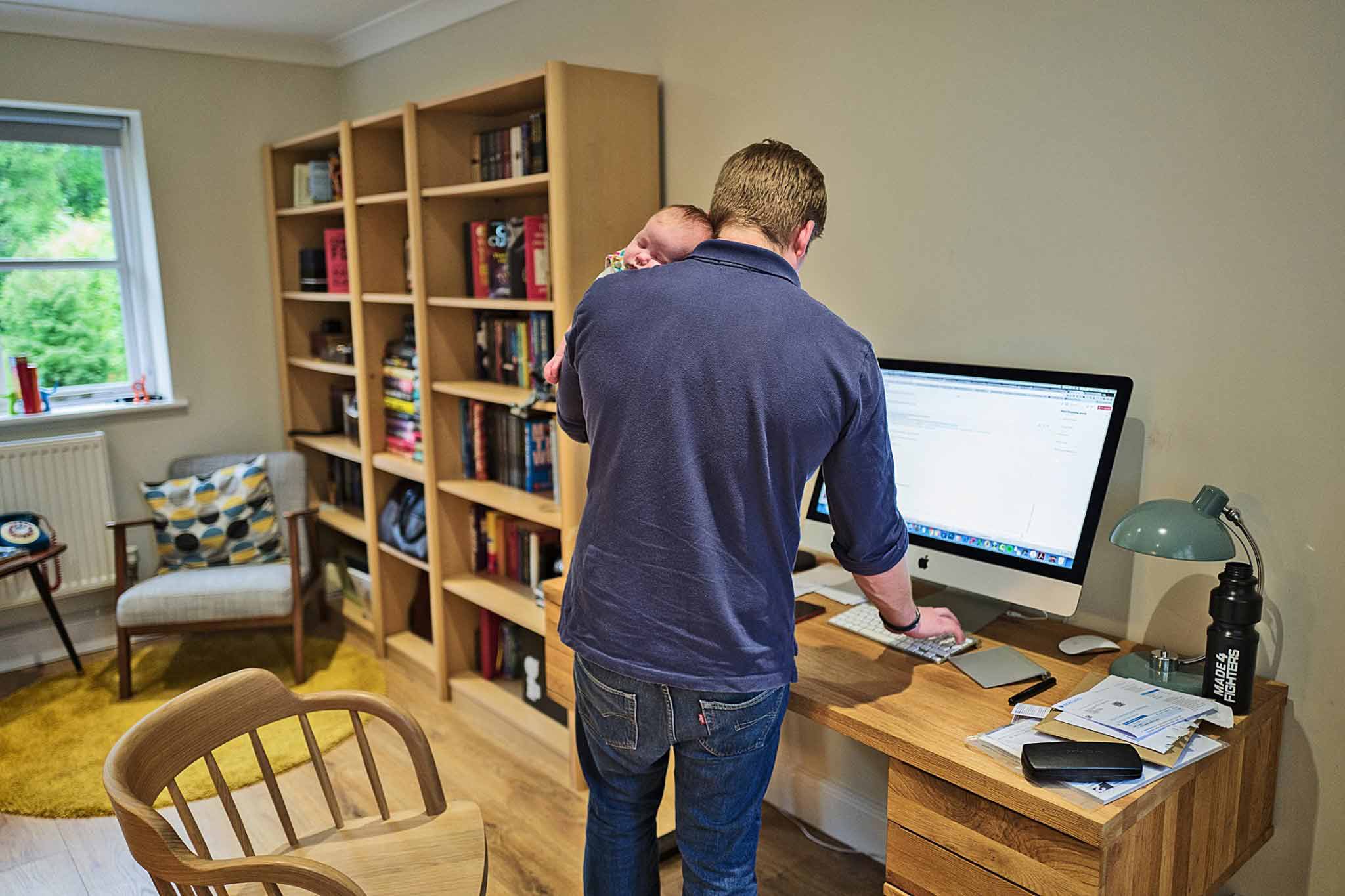

“Normal People” vs High Performers

No, it’s not this.
Vacations

Making MistakesDealing with OverwhelmMaking MoneyCoping with Stress |

|
|
.

Getting Work Done
Everybody’s different when it comes to work. Whether it’s writing, marketing, or your day job (whatever it is) there are a variety of “methods” to get stuff done – but the problem is, most of them aren’t going to suit you.
The first step is to figure out what kind of “worker” you are. Some people meticulously plan everything down to the last detail. Others fly by the seat of their pants. Most people are in the middle.
Personally, I’m a procrastinator. I leave everything until the last minute. Which means work stresses me out (because I put it off and put it off) until it’s finished. And then the cycle repeats.
So instead of bemoaning my lack of organisation, or yelling to the world “I’ll do it later!”, I use this to my advantage. It turns out, I can get a LOT done in a very short period of time if the circumstances are right.
Ever hear about those author success stories? You know the ones where an author writes a series of novels on their way to work / late at night / in-between jobs?
It turns out, tight deadlines and – paradoxically – a severe LACK of time can benefit some people. Like me.
If I give myself an hour to write 1,500 words I write 1,500 word in an hour (like this article). If I give myself all day, it takes all day (well, I leave it until 4pm and THEN do it in an hour, having worried about it all day).
So I set myself “windows” of time. Two hours in the morning, two hours in the afternoon. I schedule appointments and activities for noon and after 5pm that I can’t miss. That’s it. If I don’t get my work done in those allotted windows of time, I have to spend all evening doing it after the kids are asleep. And I don’t want to do that.
So guess what? Work gets done. Consequences and deadlines. Turn “weaknesses” into strengths.
Health and Fitness
I’m not a naturally “go out and get fit” kinda guy. I don’t enjoy hiking, kayaking, camping, or climbing. I don’t go jogging. My idea of a “fun time” does not include kale, vegan barbecues, or yoga retreats. There is very little in my day-to-day life that would be considered “active” unless I go out of my way to get exercise.
A couple of years ago I decided to make health a priority. But I also knew that – given the choice – I’d probably give up after a week or two.
It’s tempting to look at the cost of gym membership and think, “I’ll just do pushups at home and cut back on the sugar a little.” but life doesn’t work like that.
First – pushups don’t really do anything. Second – nutrition is a lifestyle change, not a quick-win diet.
So instead of repeating the same mistakes I’d made before and just paying out for a gym membership I’d never use, I knew I needed to introduce “deadlines and consequences” into that area of my life too.
That meant finding friends to work out with, so I would be more likely to show up. Later, I hired a personal trainer. I started doing Brazilian JiuJitsu and, later, boxing. In each instance, I found people to go with, or hired an instructor. Result = I actually show up. “Not showing up” isn’t an option when other people are expecting you at a specific time. Even better result = I see improvements, fast (more motivation).
I cut back on unhealthy food by finding a local cook who could provide 90% of my meals for me in tubs I could heat up at home (a lot cheaper than you’d think, about $3.00 per meal). Meaning “nutrition” is another thing I don’t have to think about. Result = when I’m hungry I don’t slap together a sandwich, grab a chocolate bar, or forget to eat altogether. I pick up my food from my gym. If I don’t make it to the gym, I can’t eat.
Consequences and deadlines.

Yup, I’m the weirdo who brings a week’s worth of food on vacation…
Finance and Money
There’s very little in life that’s quite as stressful as worrying about money. And it doesn’t matter how much you make – I’ve experienced life on welfare (today’s choice = “I can either get the bus to work, or I can eat”. I did a lot of walking), life with a middle income (“Why is everything so expensive? There goes the savings account”), and, more recently, running a seven-figure business (“Facebook wants HOW MUCH???”).
The worries don’t change. However much you make, you’ll always think, “I just need an extra $X a month and everything will be better…”
Well, it won’t. Sorry. But you can make life easier.
Over time, I implemented automation into my personal finances and business finances, and learned to stop worrying.
Each month, all the money needed for bills, expenses, taxes, etc, goes into a separate account that doesn’t have a bank card linked to it. Then I add an extra 20% at least to cover any shortfall. The same with savings. I have 6 bank accounts.
Whatever’s left in the “spending account” can be spent guilt free.
For years I lived month to month (at a variety of income levels) and ended up with nasty surprises when it was time to pay up for bills, taxes, unexpected expenses, etc. It’s no wonder the majority of lottery winners go bankrupt – and it’s not like they teach this stuff in school.
In the last 18 months, since focusing on automating my finances, I’ve managed to pay off all my student loans, credit cards, and other debt – and introduced a savings fund that will cover all my taxes 6 months before they’re due. My business has enough saved up to run for 6 months without any revenue coming in.
It’s taken me 14 years to figure this stuff out. And, in the end, all it took was 25 minutes fiddling with my online banking and 10 minutes a month with a finance spreadsheet.
End result = I don’t worry about it.
Business
In particular, “selling stuff” and “marketing”. Which broadly means “making money now” and “doing stuff that will make money later”, respectively.
Sure, there’s a lot of other stuff that goes into running a business. Like taxes, legal structures, hiring, leadership, strategy, systems, processes, and so on. And that’s a great topic for another day.

Here’s my Monday morning task list. Most of it is dealing with internal processes and campaigns 3+ months in the future. You don’t need to worry about 99.9% of this until you get the next part nailed.
But what most people want to hear about is “how do I sell more books?” and “How do I grow my audience (so I can sell more books later)?”.
This is a topic that is so widely misunderstood. The problem is, when people decide to start a business, they have no idea what they’re doing. It’s true for authors, it’s true for other types of entrepreneurs.
The skills required to write a good book are not the same as those required to go out and sell that book. The skills required to build a successful business are not the same skills required to write a book.
This is why so many authors get frustrated with marketing and sales. And it’s why so many entrepreneurs who decide “to write a book” end up throwing it in the trash.
And, because people have no idea what they’re doing, many settle for the illusion of progress. That is, making sure they feel “busy” and focusing on metrics that don’t make the slightest difference (like your Twitter following, the number of “likes” your last post got, or fiddling around on author forums all day).
An easy solution: WIBBOW
As in, “Would I Be Better Off Writing?”.
Your business is a result of the number of books (or other products) you can sell. The number of books you sell is directly related to how many people know about you and what you have to offer.
Meaning – if one particular marketing activity isn’t going to measurably increase your sales or your audience growth (eg – leads on your email list) then don’t bother. You’ll save 90% of your time and you won’t have to worry about whether what you’re doing is going to work.
That means no PR firms. No blog tours. No Twitter “Tweet Teams”. No more forums. There are better things you could be doing.
If you want to learn more about the specifics, I’ll break down exactly what you need to be doing in our online workshop, The Three-Step Formula to Automate your Author Marketing and Find Your First 10,000 Readers.
By the time you’ve been through the material, you’ll have a solid blueprint you can use to get results right away. No muss, no fuss. Choose a time that suits you here:
In the meantime, I want to hear from you…
Can you tell me one area of your life where you’ve made a small change and seen big results over time? It might be in your professional life or your personal life. Let me know in the comments below – I’ll read every reply.
Leave a comment below:











